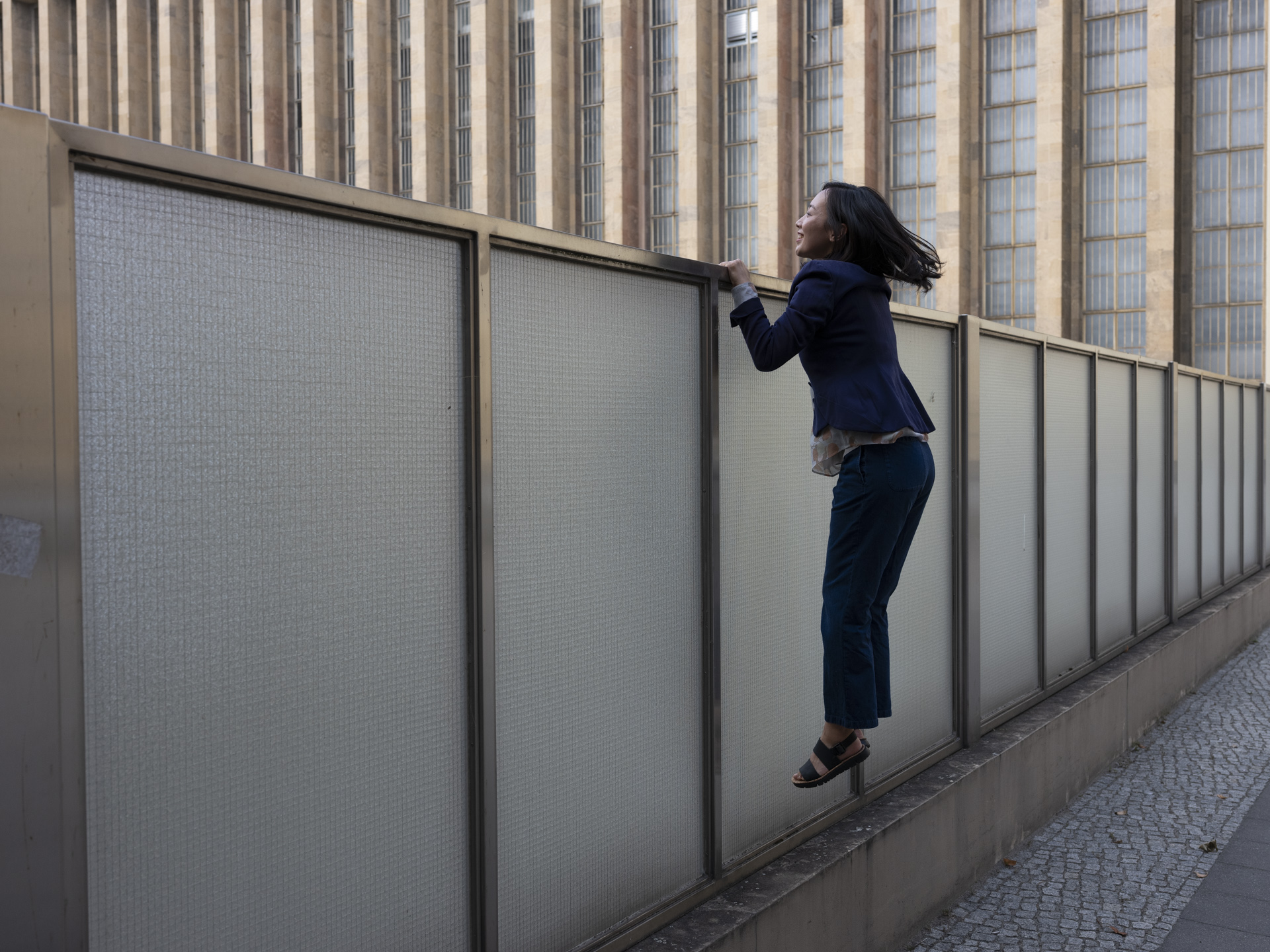China (PRC), Visual Arts, 2020
Hao
Jingban

Hao Jingban makes moving images and performances with the broken and distorted language that has constituted the modernisation of China. More precisely, she is concerned with the fissures and multiplicity of this project, which began in the 1930s. Over the last seven years, Hao has created a series called Beijing Ballroom, and she is now working on a North East China Project.
Combining experimental cinema with observational documentary, she employs a diversity of recording material to create densely textured narratives that work through the entanglement of our times. Over the last century, China has experienced and pushed forth dramatic changes in the country, with each movement beginning (in her words) “like a storm” and ending with an abrupt full stop. Riling up of the Chinese peoples’ spirit has produced an emotional landscape of unfulfilled desire. Individual memories meld into communally formed histories. As part of various propositions on a striated and complex place, Hao’s works attempt to transmit the experiences and feelings of the people. These unsettled emotions become material for knowledge production and act as a guide for the future.
Hao was born in 1985 and graduated from film studies at Goldsmiths in 2013. With a theoretical background, she slipped into film-making on her return to Beijing, where she discovered that the city’s pre-Cultural Revolution ballroom dancing culture had persisted despite the violent upheavals in the nation. Hired to film the birthday celebration of a big-fish-in-a-small-pond ballroom dancer, Hao and her cameraman ended up creating Off Takes (2016), which focussed on all the action except for that of the birthday girl they were hired to document. This work is part of a five-part series called Beijing Ballroom, which wended its way through aspects of this social – not socialist – dance tradition that seemed to casually persist against all the odds. As in her other works, the personal is highlighted in order to poke holes in the master narrative. This project led to two solo showcases in Beijing in 2016: New Directions: Hao Jingban at UCCA and Over-Romanticism at Taikang Space. That same year, Hao was awarded the Huayu Youth Award Grand Jury Prize at Art Sanya, China. In 2017, she won Young Artist of the Year at the 11th Award of Art China, and the International Critics’ Prize (FIPRESCI Prize) at the 63rd Internationale Kurzfilmtage Oberhausen.
Through the development of Hao’s work, she takes an intuitive and investigative approach, asking questions without being dogmatic. From Nanhu Park to Hongqi Road (2018) deals with the complexity of historical preservation through language. As part of the North East China Project, which began with 30 DVDs of films recovered from the Manchukuo Film Association, Hao began to work with performance in the cinematic tradition. Forsaken Landscapes 2019 is a four-channel installation dispersed throughout the exhibition space at the Rockbund Art Museum. The first three screens depict the Manchurian landscape – a nearly impossible landscape to depict because of its weather and political status – re-inscribed as unrelenting, utopian and fertile. The last screen shows benshi musician Ichiro Kataoka, who reinvigorates the land with his performance. It was first performed at Blindspot Gallery in 2018 as part of Hao’s solo exhibition Uninvited Guests, and was developed further for a performance at the Shanghai Rockbund Art Museum in 2019, where she was one of four finalists in the Hugo Boss Asia Art Award. With empathy, Hao works toward visualising what resists being seen. Delving between the hidden agenda of historical and ongoing cultural projects, Hao’s rigorous approach not only speaks about a historical moment in China’s modernisation project, but also speaks from within it. To quote from the script performed at Forsaken Landscapes 2019, “I listen to the breath of the quiet continent as the morning light gradually fades the shadows.”
Text: Hera Chan



